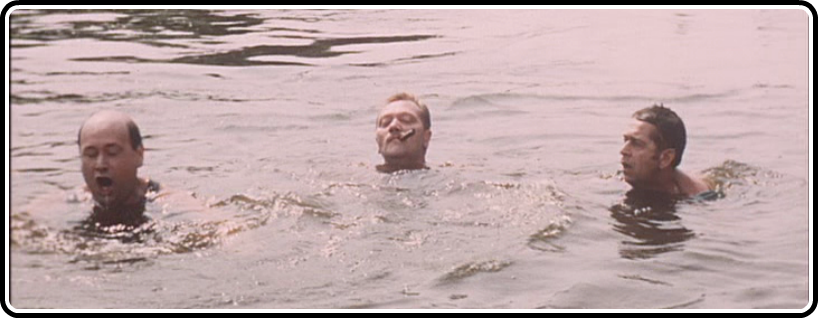CAPRICIOUS SUMMER (ROZMARNE LETO)
(director/writer: Jiri Menzel; screenwriters: Vladislav Nyvlt/Jan Libora/Vladimir Kalina/novel by Vladislav Vancura; cinematographer: Jaromir Sofr; editor: Jirina Lukesova; music: Jiri Sust ; cast: Rudolf Hrusínský (Antonín Dura), Vlastimil Brodský (Major Hugo), Frantisek Rehák (Canon Roch), Míla Myslíková (Katerina Durová), Jiri Menzel (Arnostek), Jana Drchalová (Anna); Runtime: 75; MPAA Rating: NR; producers: Dr. Zdenek Oves; The Criterion Collection; 1968-Czechoslovakia-in Czech with English subtitles)
“It’s boring, has little to say of value and its main characters are dullards.”
Reviewed by Dennis Schwartz
The young Czech New Wave filmmaker Jiri Menzel (“Closely Watched Trains”/”Larks on a String”) directs his second feature film after the award-winning Closely Watched Trains, this overrated lightweight period comedy that offers some slight philosophical insights about aging, lechery, gloom and provincial life. But it’s boring, has little to say of value and its main characters are dullards.
It’s based on the 1926 novel by Czech writer Vladislav Vančura.
The comedy is set in a sleepy unnamed riverside village in the Czech countryside in the 1920s. The former athlete but now overweight, oafish, middle-aged, blunt speaking, common man Antonín Dura (Rudolf Hrusínský) and his chicken-raising, bossy, plump wife Katrina (Míla Myslíková) run a dumpy summer resort with a swimming hole and three bathhouses. Up for the summer as guests are two of Antonin’s long-time upper-class, cautious, middle-aged friends–the local uptight preachy priest (Frantisek Rehák) and the haughty and irksome retired Army man, Major Hugo (Vlastimil Brodský). The three frolic in the water, drink a lot, go fishing, argue over trivial matters and try to recall the good ole days when they had their youth.
They are curious when a traveling threadbare Dutch circus in a caravan stops by their retreat and the circus owner of the one-man show, a tightrope walker and magician, Arnostek (Jiri Menzel, the director), hustles a meal from them and invites them to the summertime nightly shows he’s giving at the town square. At the show, an attractive blonde named Anna (Jana Drchalová), his assistant and I presume his daughter (though it’s never said what her connection is to the high-wire walker), collects money in a tray for those waiting outside to see the show. The married man, Antonin, makes a play for Anna, who doesn’t resist and coyly flirts with not only the aggressive Antonin but the two timid bachelor friends. All the men are receptive to her flirtations.
In retaliation for her hubby’s dalliance with Anna, the frustrated Katrina moves into the wagon with the circus performer and his daughter and starts bossing them around as she cleans the wagon.
The capricious summer (meaning bad rainy weather days, which is bad for Antonin’s business) passes quickly for the grumpy men, who all feel better for having the circus in town but a little sadder when the caravan leaves and they must confront again their empty lives as things return to normal.
Menzel has said in interviews he was influenced by Jean Renoir’s A Day in the Country (1946), a superior film. But at least the Czech brought the Frenchman’s same quality of beautiful color photography to his film.
Afterwards, when shooting his third film, Soviet tanks took control of Prague and the Czech communist government was pressured by the invaders to crack down on artistic films. All the Czech New Wave filmmaker were stopped from making films and left the country. Menzel refused to leave Czechoslovakia and in order to make films he agreed to publicly denounce the Czech New Wave and accept the government censorship.

REVIEWED ON 12/3/2019 GRADE: C+ https://dennisschwartzreviews.com/